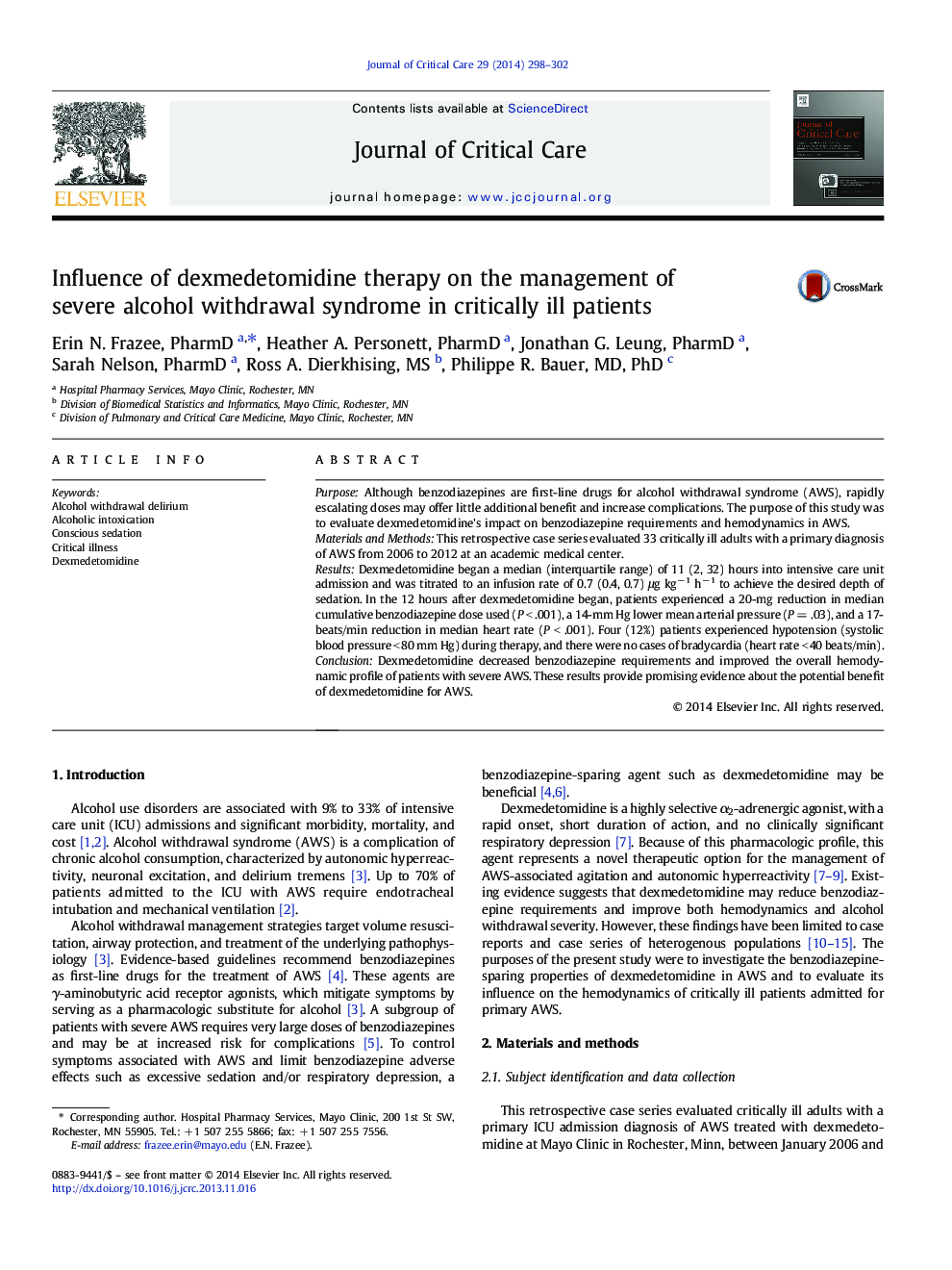| Article ID | Journal | Published Year | Pages | File Type |
|---|---|---|---|---|
| 5886857 | Journal of Critical Care | 2014 | 5 Pages |
PurposeAlthough benzodiazepines are first-line drugs for alcohol withdrawal syndrome (AWS), rapidly escalating doses may offer little additional benefit and increase complications. The purpose of this study was to evaluate dexmedetomidine's impact on benzodiazepine requirements and hemodynamics in AWS.Materials and MethodsThis retrospective case series evaluated 33 critically ill adults with a primary diagnosis of AWS from 2006 to 2012 at an academic medical center.ResultsDexmedetomidine began a median (interquartile range) of 11 (2, 32) hours into intensive care unit admission and was titrated to an infusion rate of 0.7 (0.4, 0.7) μg kgâ 1 hâ 1 to achieve the desired depth of sedation. In the 12 hours after dexmedetomidine began, patients experienced a 20-mg reduction in median cumulative benzodiazepine dose used (P < .001), a 14-mm Hg lower mean arterial pressure (P = .03), and a 17-beats/min reduction in median heart rate (P < .001). Four (12%) patients experienced hypotension (systolic blood pressure < 80 mm Hg) during therapy, and there were no cases of bradycardia (heart rate < 40 beats/min).ConclusionDexmedetomidine decreased benzodiazepine requirements and improved the overall hemodynamic profile of patients with severe AWS. These results provide promising evidence about the potential benefit of dexmedetomidine for AWS.
